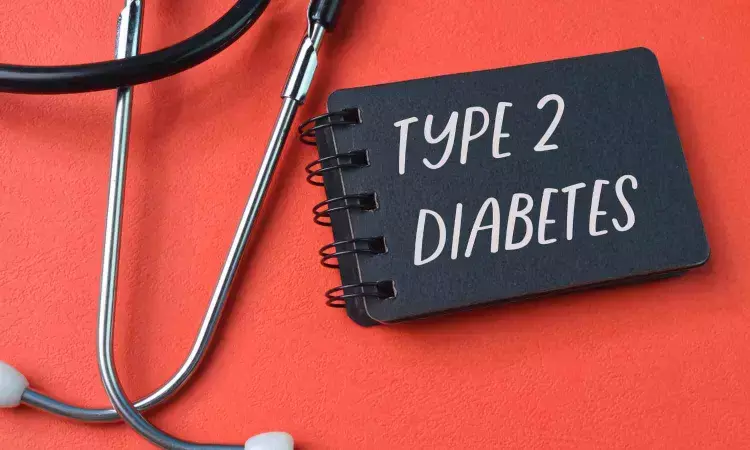- Home
- Medical news & Guidelines
- Anesthesiology
- Cardiology and CTVS
- Critical Care
- Dentistry
- Dermatology
- Diabetes and Endocrinology
- ENT
- Gastroenterology
- Medicine
- Nephrology
- Neurology
- Obstretics-Gynaecology
- Oncology
- Ophthalmology
- Orthopaedics
- Pediatrics-Neonatology
- Psychiatry
- Pulmonology
- Radiology
- Surgery
- Urology
- Laboratory Medicine
- Diet
- Nursing
- Paramedical
- Physiotherapy
- Health news
- Fact Check
- Bone Health Fact Check
- Brain Health Fact Check
- Cancer Related Fact Check
- Child Care Fact Check
- Dental and oral health fact check
- Diabetes and metabolic health fact check
- Diet and Nutrition Fact Check
- Eye and ENT Care Fact Check
- Fitness fact check
- Gut health fact check
- Heart health fact check
- Kidney health fact check
- Medical education fact check
- Men's health fact check
- Respiratory fact check
- Skin and hair care fact check
- Vaccine and Immunization fact check
- Women's health fact check
- AYUSH
- State News
- Andaman and Nicobar Islands
- Andhra Pradesh
- Arunachal Pradesh
- Assam
- Bihar
- Chandigarh
- Chattisgarh
- Dadra and Nagar Haveli
- Daman and Diu
- Delhi
- Goa
- Gujarat
- Haryana
- Himachal Pradesh
- Jammu & Kashmir
- Jharkhand
- Karnataka
- Kerala
- Ladakh
- Lakshadweep
- Madhya Pradesh
- Maharashtra
- Manipur
- Meghalaya
- Mizoram
- Nagaland
- Odisha
- Puducherry
- Punjab
- Rajasthan
- Sikkim
- Tamil Nadu
- Telangana
- Tripura
- Uttar Pradesh
- Uttrakhand
- West Bengal
- Medical Education
- Industry
Mifepristone may lower HbA1c in patients with hypercortisolism and poorly controlled type 2 diabetes: Study

Mifepristone was shown to lower HbA1c levels at 24 weeks compared to placebo in patients with hypercortisolism and poorly controlled type 2 diabetes. Researchers also noted that nearly one-fourth of a cohort with hard-to-control type 2 diabetes had hypercortisolism. These findings were presented at the World Congress on Insulin Resistance, Diabetes & Cardiovascular Disease.
CATALYST is a prospective, Phase 4 study with two parts. The first part assessed the prevalence of hypercortisolism by screening 1057 patients with difficult-to-control type 2 diabetes, defined as hemoglobin A1c greater than 7.5 percent despite receiving optimal therapies, including GLP-1 agonists. Of these patients, 23.8 percent were identified as having hypercortisolism and were eligible to enter CATALYST’s treatment phase, in which 136 patients were randomized, 2:1, to receive either Korlym or placebo for 24 weeks. The primary endpoint was the reduction in hemoglobin A1c between these groups.
CATALYST met its primary endpoint. Patients who received Korlym exhibited a clinically meaningful and statistically significant improvement in hemoglobin A1c, with a decrease from baseline of 1.47 percent as compared to a decrease of 0.15 percent in patients who received placebo (placebo-adjusted reduction of 1.32 percent; p-value: < 0.0001). The safety profile of Korlym in this study was consistent with the medication’s label and no new side effects or adverse events were identified.
Complete results from CATALYST will be presented at a medical conference next year.
“CATALYST’s first part showed that hypercortisolism is much more common than previously assumed. The results announced today show that Korlym is a safe and effective treatment option,” said Ralph DeFronzo, MD, chief of the Diabetes Division and professor of medicine at UT Health San Antonio and CATALYST study investigator. “Reductions in hemoglobin A1c of this magnitude are of great clinical benefit. They are particularly compelling, given that the patients in CATALYST had been receiving our best therapies – but continued to experience serious disease. These findings should prompt expanded screening for hypercortisolism, more effective treatment and better health outcomes for patients who are struggling today.”
“The results of the CATALYST study will enable physicians to more accurately diagnose and treat patients with hypercortisolism - a serious and deadly disease,” said Bill Guyer, PharmD, Corcept’s Chief Development Officer. “One in four patients with difficult-to-control type 2 diabetes have hypercortisolism and Korlym, a cortisol modulator, was highly effective in controlling hyperglycemia in this patient population.”
About Hypercortisolism (Cushing’s Syndrome)
Hypercortisolism is caused by excessive activity of the hormone cortisol. Symptoms vary, but most patients experience one or more of the following manifestations: hypertension, central obesity, elevated blood sugar and difficult-to-control type 2 diabetes, severe fatigue and weak muscles. Irritability, anxiety, depression and cognitive disturbances are common. Hypercortisolism can affect every organ system and can be lethal if not treated effectively.
Dr Kamal Kant Kohli-MBBS, DTCD- a chest specialist with more than 30 years of practice and a flair for writing clinical articles, Dr Kamal Kant Kohli joined Medical Dialogues as a Chief Editor of Medical News. Besides writing articles, as an editor, he proofreads and verifies all the medical content published on Medical Dialogues including those coming from journals, studies,medical conferences,guidelines etc. Email: drkohli@medicaldialogues.in. Contact no. 011-43720751


